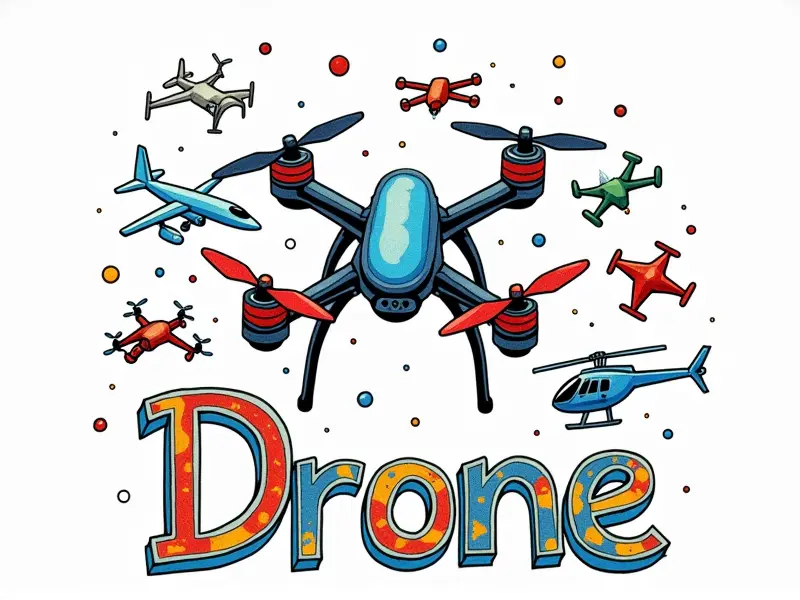Why do FPV drones have ESCs?

Why ESCs Are Crucial for FPV Pilots
Electronic Speed Controllers (ESCs) are a critical component in the world of First-Person View (FPV) drones. These devices play an essential role in controlling and optimizing the performance of brushless motors, which are vital for achieving high speeds and precise maneuverability. Without ESCs, FPV pilots would struggle to achieve the level of control necessary for competitive racing or engaging recreational flying.
Maximizing Speed with FPV Drone ESCs
The primary function of an ESC in an FPV drone is to regulate the speed and power output of brushless motors. This regulation allows pilots to fine-tune their drones' performance, enabling them to reach top speeds quickly and maintain stability during high-speed maneuvers. Advanced ESCs can also provide real-time telemetry data, allowing pilots to monitor motor health and adjust settings on-the-fly for optimal performance.
How ESCs Enhance FPV Drone Performance
ESCs not only control the speed of motors but also manage power distribution across multiple components. By efficiently allocating energy, ESCs ensure that all parts of an FPV drone operate at peak efficiency. This includes managing battery discharge rates and preventing overheating, which can be critical during prolonged flight sessions or high-intensity racing events.
Essential Components: FPV Drone ESCs Explained
An ESC consists of several key components that work together to provide precise motor control:
- BEC (Battery Eliminator Circuit): Supplies power to the drone's receiver and other onboard electronics.
- MOSFETs (Metal-Oxide-Semiconductor Field-Effect Transistors): High-speed switches that control current flow to the motor.
- Microcontroller: Manages data processing, communication with the flight controller, and power distribution.
- Sensors: Monitor voltage levels, temperature, and other critical parameters for real-time adjustments.
The Impact of ESCs on FPV Drone Flight
The impact of ESCs on an FPV drone's flight performance is profound. They enable pilots to achieve unparalleled speed and agility by providing instantaneous motor control. This responsiveness is crucial in competitive racing scenarios where fractions of a second can mean the difference between victory and defeat.
Improved Motor Control
ESCs offer precise motor control, allowing for smooth transitions between different flight modes such as hover, climb, and descent. This precision ensures that FPV drones maintain stability even during rapid changes in direction or altitude.
Battery Management
Effective ESCs manage battery discharge rates to maximize flight time while minimizing the risk of sudden power loss. By optimizing energy distribution, pilots can extend their flying sessions and push their drones harder without compromising safety.
Understanding ESC Functionality in FPVs
To fully appreciate the importance of ESCs in FPV drones, it's essential to understand how they function:
- Data Communication: ESCs communicate with flight controllers and other onboard systems via serial protocols like PWM (Pulse Width Modulation) or DShot.
- Motor Control: By modulating the current supplied to brushless motors, ESCs enable precise speed control and torque management.
- Troubleshooting: Advanced ESCs often include diagnostic features that help identify issues such as motor failures or power supply problems.
Optimizing Your FPV Drone with Advanced ESCs
To get the most out of your FPV drone, consider upgrading to advanced ESC models. These devices offer enhanced features like:
- Built-in Telemetry: Real-time monitoring of motor health and performance metrics.
- Dual-Bus Support: Compatibility with both PWM and DShot protocols for improved data transmission speed and reliability.
- Customizable Profiles: Tailored settings to optimize ESC behavior based on specific flight conditions or preferences.
Why ESCs Are Vital for FPV Drone Performance
The importance of ESCs in FPV drones cannot be overstated. They are the backbone of motor control and power management, enabling pilots to achieve exceptional performance levels that would otherwise be unattainable. Whether you're a competitive racer or an enthusiast looking to push your drone's limits, investing in high-quality ESCs is crucial for unlocking full potential.
How ESCs Power FPV Racing Drones
In the realm of FPV racing drones, ESCs are indispensable. They enable pilots to achieve lightning-fast speeds and execute complex maneuvers with pinpoint accuracy. By providing instantaneous motor control and efficient power distribution, ESCs ensure that racing drones can perform at their best under intense conditions.
Speed and Agility
The ability of ESCs to deliver rapid speed adjustments is crucial in competitive racing scenarios where quick reflexes and precise control are paramount. This responsiveness allows pilots to outmaneuver opponents and navigate tight courses with ease.
Reliability Under Pressure
Racing drones often operate under extreme conditions, requiring ESCs that can handle high temperatures and rapid power fluctuations without compromising performance or safety. Advanced ESC models offer robust designs and advanced cooling systems to ensure reliability during intense races.
Exploring the Importance of ESCs in FPV
The role of ESCs in FPV drones extends beyond mere functionality; they are integral to achieving optimal flight characteristics that define the FPV experience. By understanding how ESCs work and selecting high-quality models, pilots can enhance their flying capabilities and enjoy a more rewarding and exhilarating hobby.
Conclusion
In summary, Electronic Speed Controllers (ESCs) are indispensable components in FPV drones, providing essential motor control and power management that enable exceptional performance. Whether you're an experienced racer or a casual enthusiast, investing in high-quality ESCs is key to unlocking the full potential of your FPV drone.

